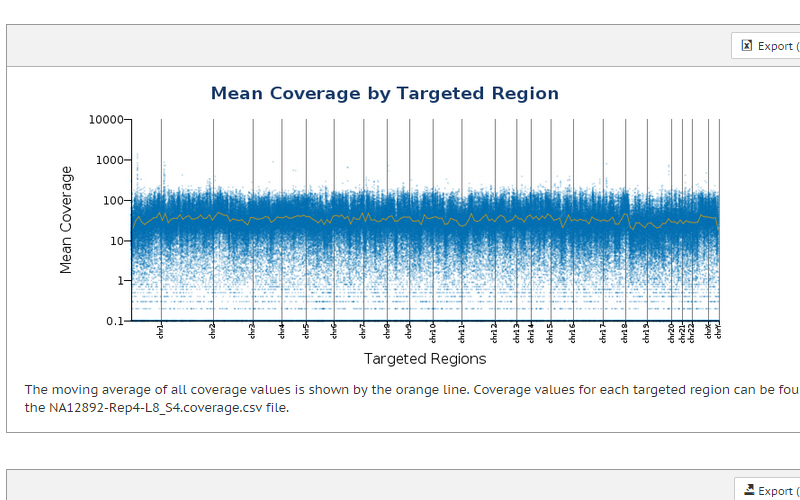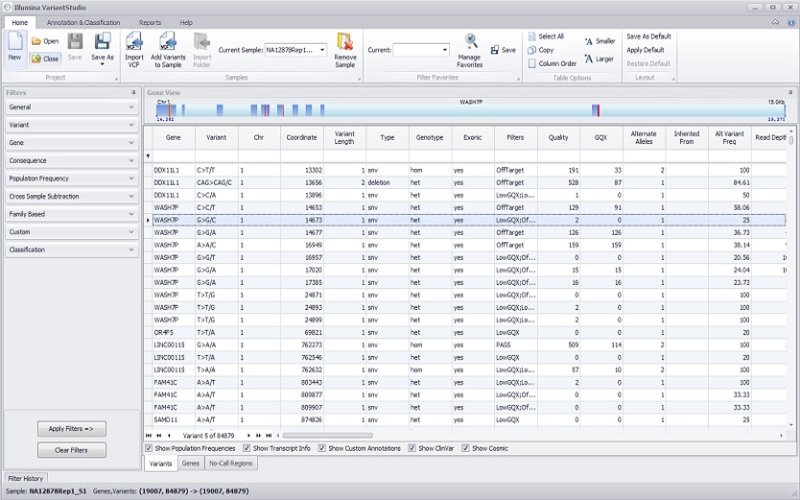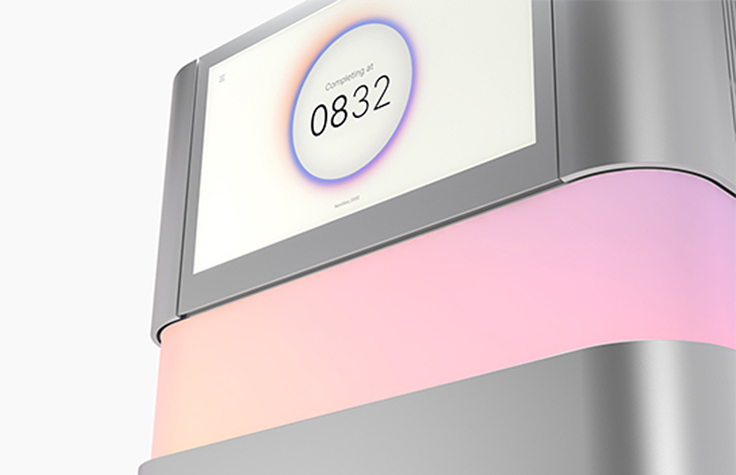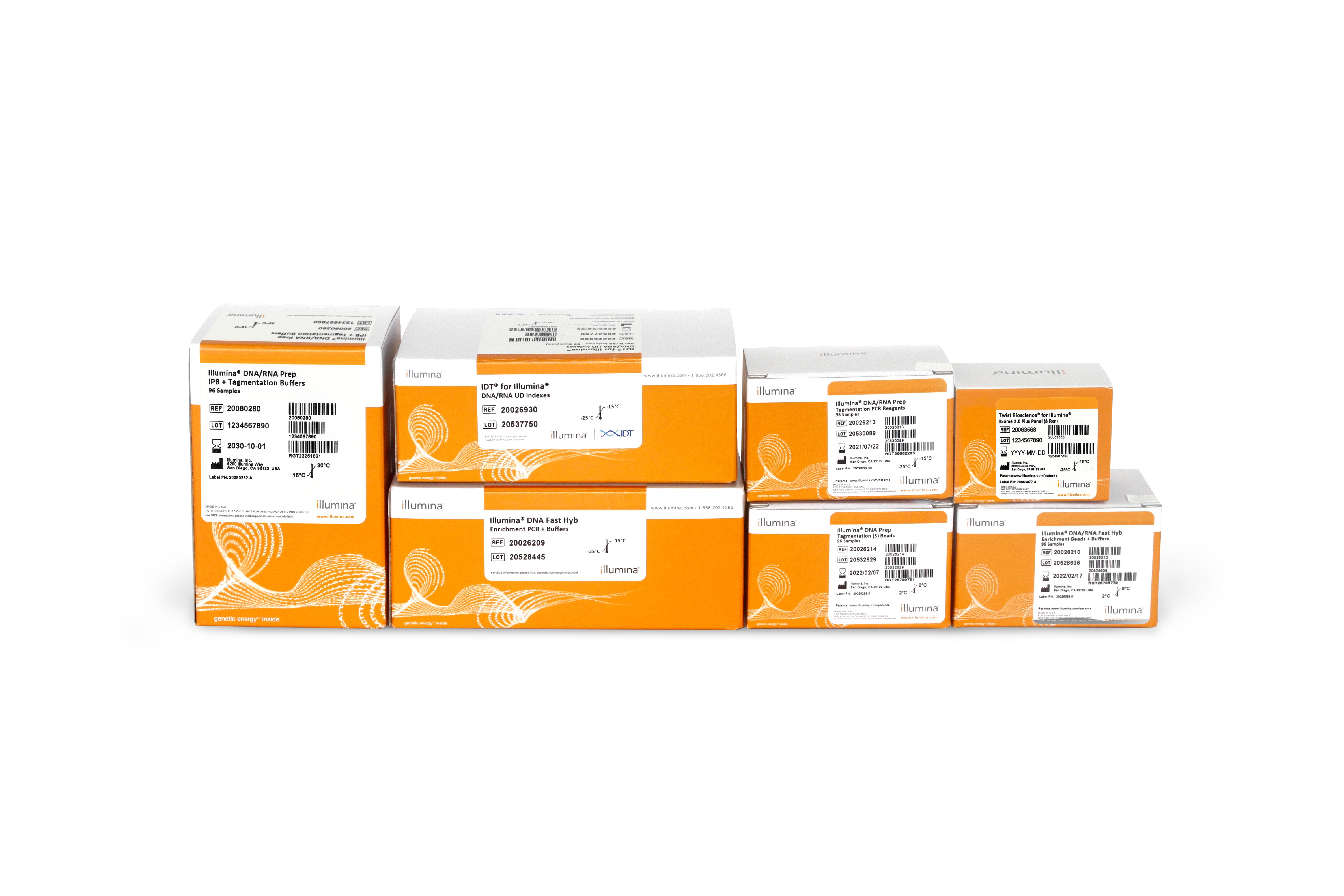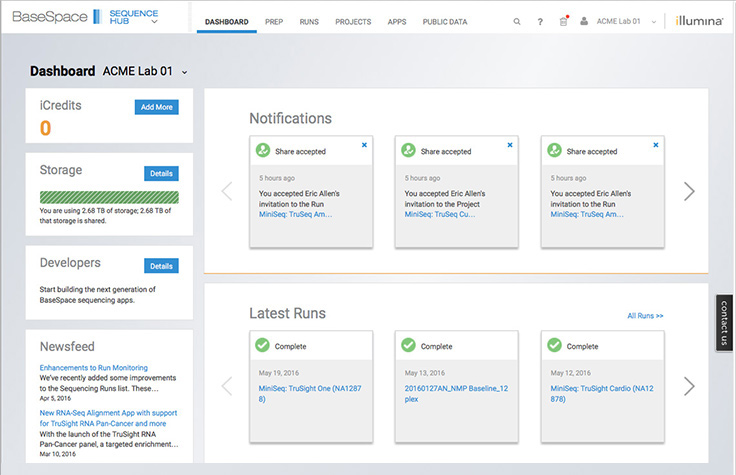Exome Sequencing
What is Exome Sequencing?
Whole-exome sequencing is a widely used next-generation sequencing (NGS) method that involves sequencing the protein-coding regions of the genome. The human exome represents less than 2% of the genome, but contains ~85% of known disease-related variants,1 making this method a cost-effective alternative to whole-genome sequencing.
Exome sequencing using exome enrichment can efficiently identify coding variants across a broad range of applications, including population genetics, genetic disease, and cancer studies.
Whole-Exome Sequencing in 3 Simple Steps
Investigate the protein-coding regions of the genome with this comprehensive workflow solution.
Advantages of Exome Sequencing
- Identifies variants across a wide range of applications
- Achieves comprehensive coverage of coding regions
- Provides a cost-effective alternative to whole-genome sequencing (4–5 Gb of sequencing per exome compared to ~90 Gb per whole human genome)
- Produces a smaller, more manageable data set for faster, easier data analysis compared to whole-genome approaches
Whole-Exome vs. Whole-Genome Sequencing
Explore the benefits of both approaches to understand which method is best for your research.
Efficient Analysis of Coding Regions
Exome sequencing is a cost-effective approach when whole-genome sequencing is not practical or necessary. Sequencing only the coding regions of the genome enables researchers to focus their resources on the genes most likely to affect phenotype, and offers an accessible combination of turnaround time and price.
Exome sequencing detects variants in coding exons, with the capability to expand targeted content to include untranslated regions (UTRs) and microRNA for a more comprehensive view of gene regulation. DNA libraries can be prepared in as little as 1 day and require only 4–5 Gb of sequencing per exome.
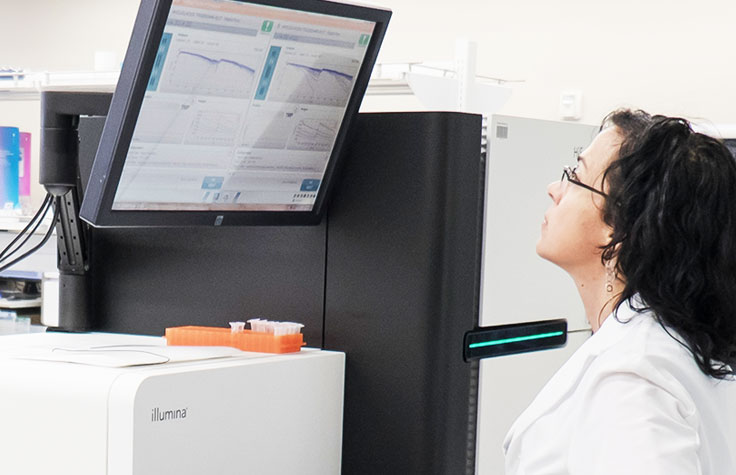
Featured Exome Sequencing Research

Sequencing Thousands of Samples to Gain Insights into Novel Variants
Regeneron Genetics Center researchers perform exome sequencing analysis on patient-consented data sets to identify relevant genetic associations.
Read Article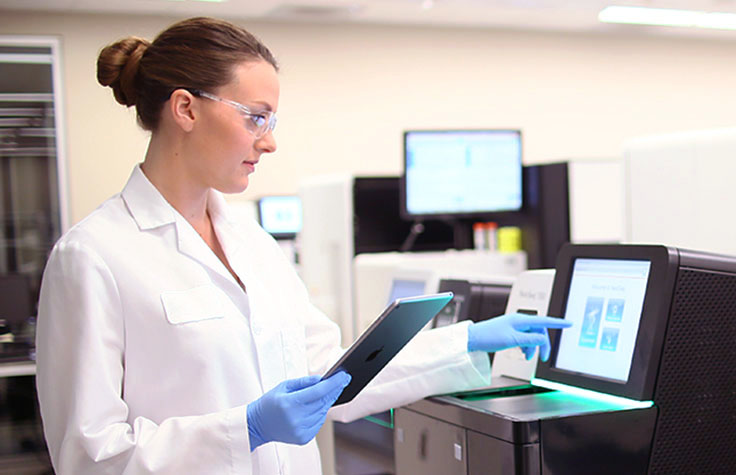
Using Exome and RNA-Seq to Study Rare Genetic Diseases
Whole-exome and RNA sequencing prove beneficial in uncovering mutations and pathways associated with rare disease.
Read Article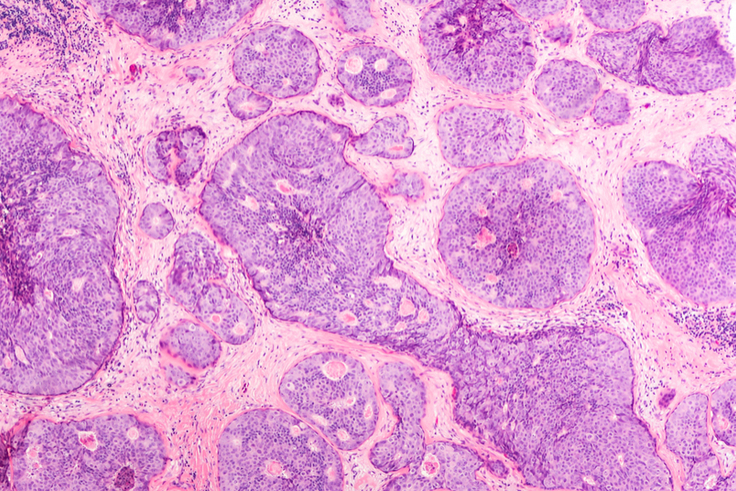
NGS Proves Invaluable for Biomarker Discovery
Researchers use exome sequencing, RNA sequencing, and other NGS methods in their search for cancer-associated gene expression profiles.
Read ArticleRecommended Whole-Exome Sequencing Workflow
Library Prep
Illumina DNA Prep with Exome 2.0 Plus Enrichment
A high-performance, fast, and complete whole-exome sequencing kit.
Sequencing
NovaSeq 6000 System
Scalable throughput and flexibility for virtually any genome, sequencing method, and scale of project.
Data Analysis
DRAGEN Enrichment App
Push-button alignment, followed by variant calling of Illumina exomes to rapidly identify disease-associated variants.
Exome Sequencing Data Analysis
Illumina DRAGEN secondary analysis was developed to address important challenges associated with analyzing NGS data for a range of applications, including exome as well as genome, transcriptome, methylome studies, and more. This software suite rapidly processes NGS data and enables tertiary analysis to drive insights. The available tools make up a highly accurate, comprehensive, and efficient solution that enables labs of all sizes and disciplines to do more with their genomic data.
Learn More About DRAGENEfficient Exome and Multiomics Data Analysis for COPD Study
Scientists discuss how DRAGEN pipelines and Illumina Connected Analytics helped them analyze exome sequencing data as well as whole-genome, transcriptome, and metagenome data for a chronic obstructive pulmonary disease (COPD) research project.
Comprehensive Whole-Exome Sequencing Workflow
Illumina sequencing by synthesis (SBS) chemistry is the most widely adopted next-generation sequencing (NGS) technology, generating approximately 90% of global sequencing data.*
Illumina offers whole-exome sequencing workflows that simplify the entire process, from exome enrichment and library preparation to sequencing, data analysis, and biological interpretation.
Click on the below to view products for each workflow step.
A high-performance, fast, and complete whole-exome sequencing kit.
Illumina DNA Prep with Exome EnrichmentA fast, integrated whole-exome enrichment and sequencing library preparation workflow for a wide range of applications.
Comprehensive panels targeting disease-associated regions of the exome with high analytical sensitivity and specificity.
Library Prep Kit SelectorDetermine the best kit for your needs based on project type, starting material, and method or application.
Focused power to sequence targeted regions or 1 human exome per run.
NextSeq 1000 & 2000 SystemsAccess a cost-effective, DNA-to-results workflow for exome analysis and accurate variant calling. Read App Note.
NovaSeq 6000 SystemScalable throughput and flexibility for virtually any genome, sequencing method, and scale of project.
Extraordinary throughput and accuracy to perform data-intensive applications at production scale.
Illumina sequencing platformCompare sequencing platforms and identify the best system for your lab and applications.
Sequencing ReagentsFind kits that include sequencing reagents, flow cells, and/or buffers tailored to each Illumina sequencing system.
Designed to accelerate the time and certainty in user-defined variant interpretation, prioritization, curation, and research report generation.
Illumina Connected InsightsEnable insights and variant interpretation for diverse genomic testing applications at scale.
DRAGEN Enrichment AppPush-button alignment followed by variant calling of Illumina exomes to rapidly identify disease-associated variants.
BaseSpace Integrative Genomics Viewer AppAssociates single gene or list of genes with annotation data for pathways, diseases, tissues, and small molecules.
The Illumina genomics computing environment for NGS data analysis and management.
Correlation EngineA growing library of curated genomic data to support researchers in identifying disease mechanisms, drug targets, and biomarkers.
DRAGEN secondary analysisThe Illumina DRAGEN (Dynamic Read Analysis for GENomics) secondary analysis platform provides ultra-rapid secondary analysis of NGS data.
Featured Products
Related Solutions
Choosing an NGS Company

Seek out a best-in-class next-generation sequencing company with user-friendly bioinformatics tools and industry-leading support and service. See the evidence.
Cancer Exome Analysis

This method provides useful information about coding mutations associated with tumor progression. By sequencing less than 2% of the genome, it is possible to sequence to higher depth more economically. Learn more about cancer exome sequencing.
Complex Disease Genomics
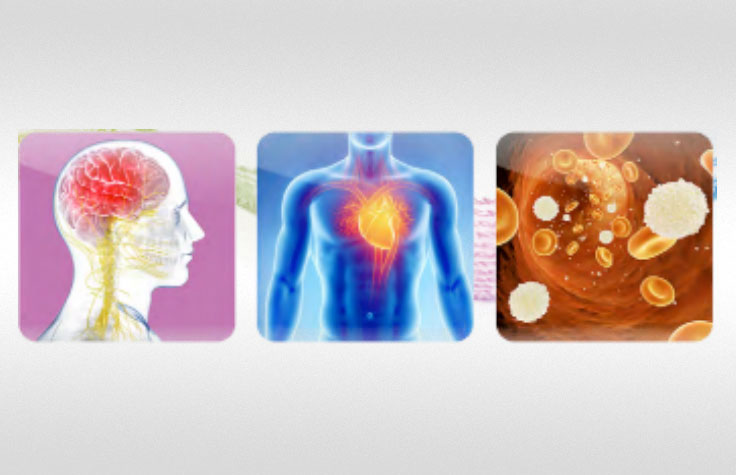
Whole-exome sequencing is a common approach to finding causal variants in cases of complex disorders. Learn more about complex disease research.
RNA Exome Capture Sequencing
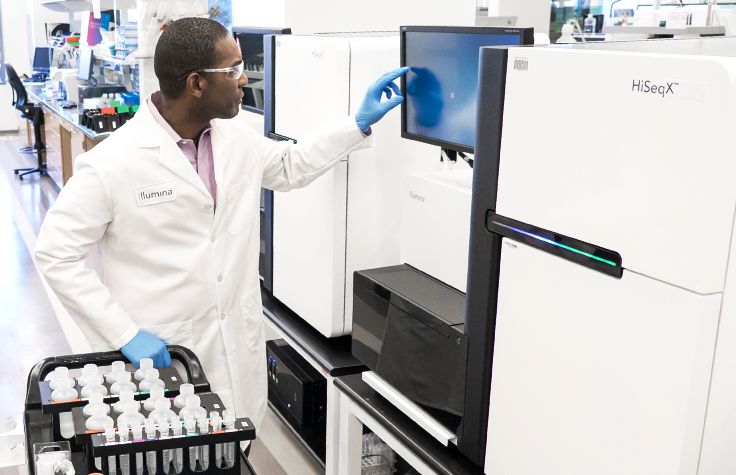
Achieve cost-effective, accurate, and sensitive RNA exome analysis of even difficult samples without sacrificing gene fusion discovery power. Learn more about RNA exome capture sequencing.
Rare Disease Variant Analysis

NGS-based exome analysis can help scientists uncover variants linked to rare and undiagnosed disorders. Learn more about rare disease genomics.
Interested in receiving newsletters, case studies, and information on genomic analysis techniques? Enter your email address.
Additional Resources

Genetic Contributions of Cognitive Control
Exome sequencing helps researchers identify variants for an array designed for ADHD, autism, and schizophrenia studies.
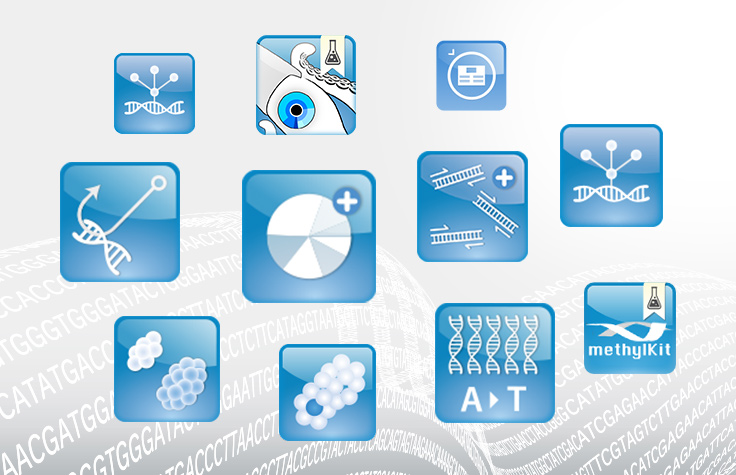
DNA Sequencing Data Analysis
Explore user-friendly tools for intuitive analysis of DNA sequencing data.
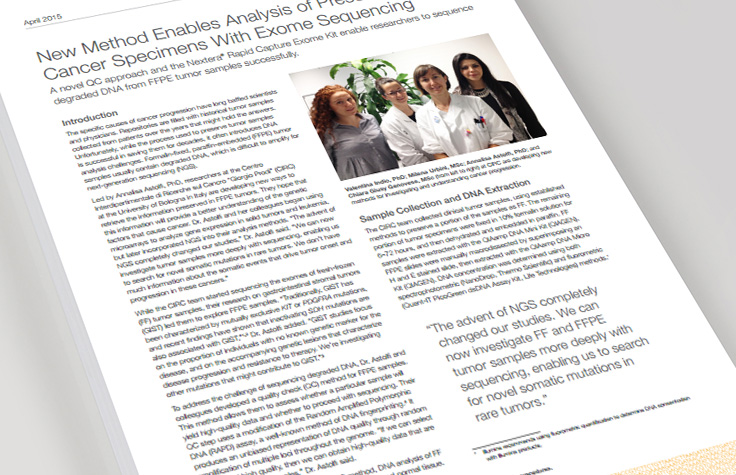
Whole-Exome Sequencing of FFPE Samples
Researchers in Italy developed a quality control method that enables them to sequence formalin-fixed, paraffin-embedded tissues.
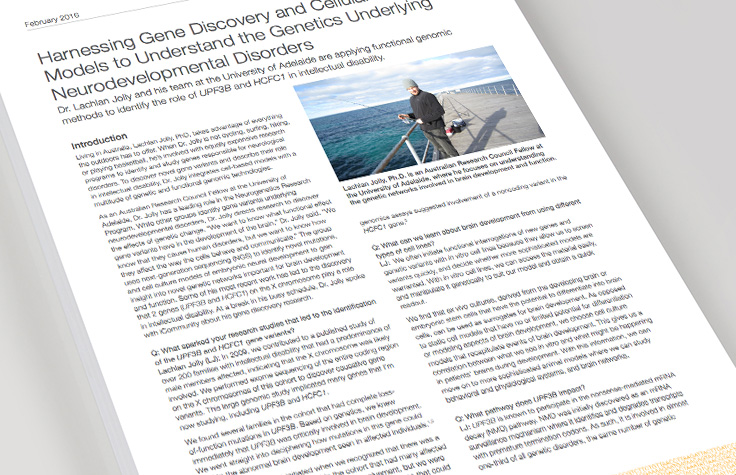
Genetics of Neurological Disorders
Researchers use exome sequencing, arrays, and other methods to identify gene variants linked to intellectual disability.
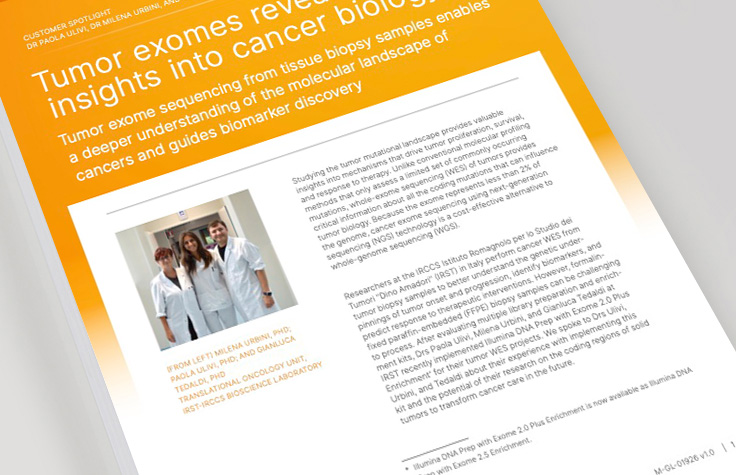
Tumor insights with exome sequencing
Read this customer story on how researchers performed cancer whole-exome sequencing from tumor biopsy samples using Illumina DNA Prep with Exome 2.0 Plus Enrichment and its potential to transform cancer care in the future.
Reference
- van Dijk EL, Auger H, Jaszczyszyn Y, Thermes C. Ten years of next-generation sequencing technology. Trends Genet. 2014;30:418-426.
*Data calculations on file. Illumina, Inc., 2015
